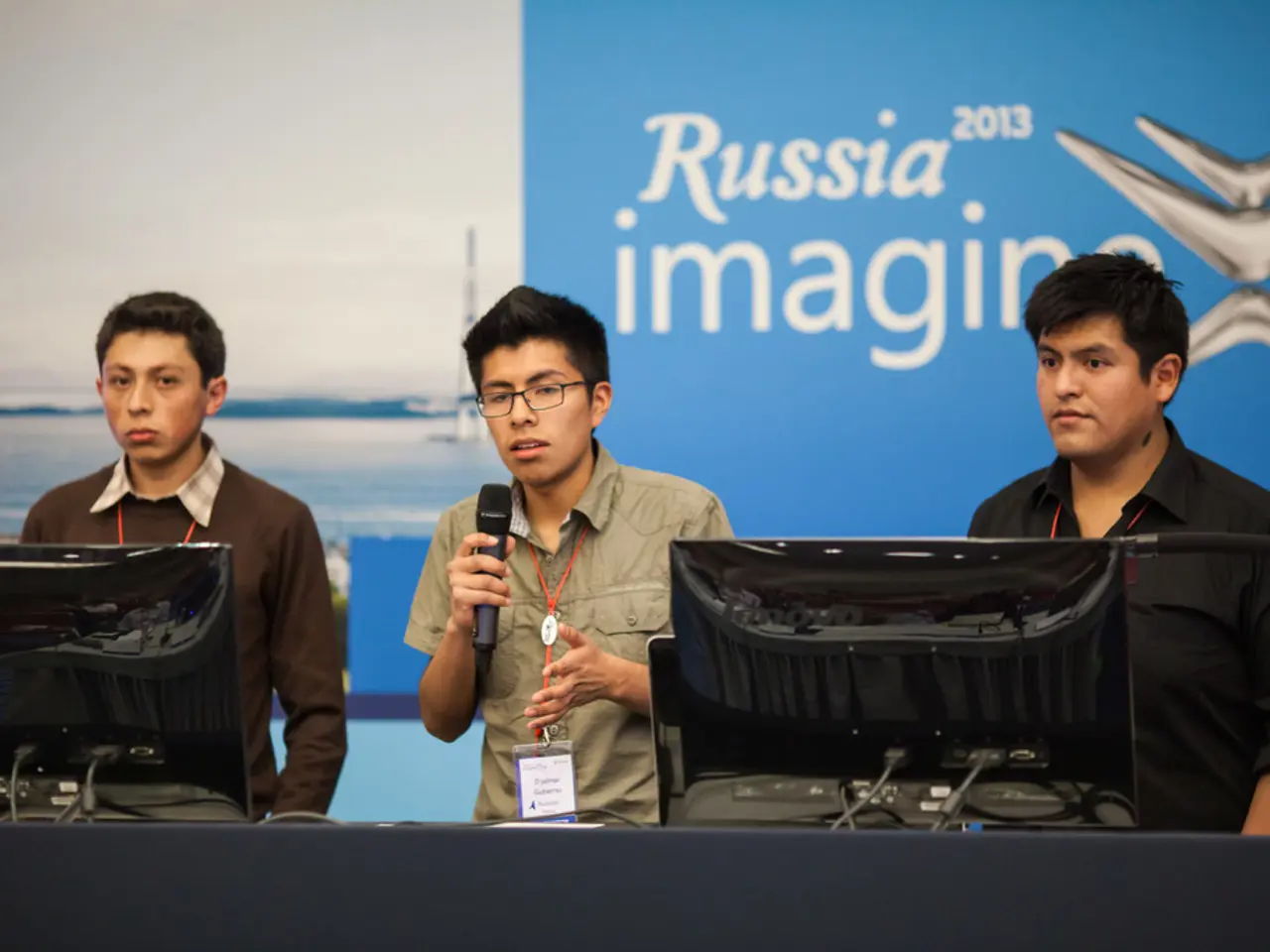"Hacking Attacks on Aeroflot and Other Russian Corporations: Who Masterminds the Sowing of Disorder?"
In recent times, a series of targeted cyberattacks have been launched against diverse Russian companies, including Aeroflot, Neofarm, Stolichki, Semya Doctor, Vinlab, and others. These attacks, it seems, are the result of a complex interplay of factors that range from geopolitical tensions to ideological motivations.
Geopolitical Conflict and Retaliation
Many of these attacks appear to be motivated by the ongoing conflict between Russia and Ukraine. Pro-Ukrainian hacker groups, such as Silent Crow and Belarusian hackers, have been actively targeting Russian strategic infrastructure as acts of cyber warfare or retaliation. For instance, these groups claimed responsibility for the cyberattack that grounded Aeroflot flights, citing Russia’s occupation of Ukraine [2][4].
Strategic Targeting of Critical Sectors
Attackers have shown a keen interest in companies tied to key Russian industries, including aerospace, logistics, healthcare, and energy. The cyber espionage campaign against Russian aerospace companies, which used sophisticated malware (EAGLET) deployed via phishing lures, aimed at exfiltrating sensitive data [1]. This indicates that attackers target firms crucial to national infrastructure and economy.
Use of Sophisticated Cyber Techniques
The attacks leverage spear-phishing, malware implants, and network intrusions to gain long-term access and control over corporate networks. The access that Silent Crow had to Aeroflot’s corporate network for a year, crippling thousands of servers and stealing sensitive data, showcases high operational capability and persistence [2].
Ideological and Political Motivations
These hackers operate within political narratives, gaining support from sympathizers and activists in the region. Groups such as Silent Crow and Cyber Partisans expand their resources and justifications for attacks through this support [2][3].
Sanctions and Economic Pressures
Some targets, such as companies linked to sanctioned entities, may be targeted due to their perceived role in Russia’s broader economic or military capabilities, increasing their attractiveness for espionage and disruption [1].
Broadening Cyber Conflict Sphere
These attacks not only disrupt business operations but also aim to degrade infrastructure resilience, impose financial and reputational damage, and potentially expose sensitive personal or corporate data, as threatening public data releases suggest [2].
Addressing the Security Threat
Given the real security threat posed by the presence of foreign software, it is crucial for companies, regardless of size, to address this issue. Smaller companies, which may not be able to afford anti-hacker software, are particularly vulnerable. Companies with large client databases, especially those with vulnerable security systems, are at high risk.
The use of Western or integrated Western software is considered a security threat. Companies that use software from unfriendly countries, such as Windows and SAP, are at risk due to potential hacker access. Transitioning to domestic software is crucial for security, but this may not happen quickly.
Domestic software development should be well-funded, and strategic and public-serving companies should have access to affordable loans and state aid for protective systems. Large companies operating on the international market and those that conducted IPOs are at risk due to software vulnerabilities. The use of SAP, a business management suite, poses security risks.
In conclusion, the cyberattacks on Russian companies underscore the need for vigilance and proactive measures to safeguard critical infrastructure. A combination of geopolitical tensions, economic sanctions, critical sector targeting, advanced malware and hacking tactics, and ideological-driven cyber-activism have contributed to this diverse and sustained cyber threat landscape [1][2][4].
- The ongoing cyberattacks on Russian companies suggest a complicated interplay of factors, including geopolitical tensions between Russia and Ukraine, as pro-Ukrainian hacker groups target these companies as acts of cyber warfare or retaliation.
- The attackers’ choice of targets, such as companies linked to key industries like aerospace, logistics, healthcare, and energy, hints at a focus on firms that are vital to national infrastructure and the economy.
- These cyberattacks not only involve sophisticated techniques like spear-phishing, malware implants, and network intrusions but also aim to impose financial and reputational damage, degrade infrastructure resilience, and potentially expose sensitive data, often with ideological and political motivations.




